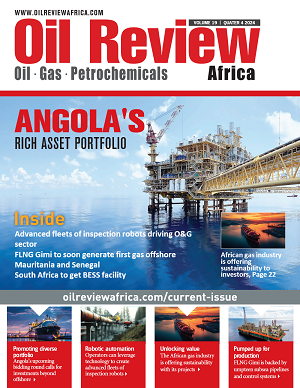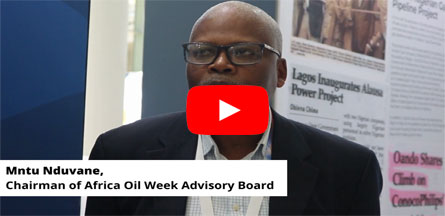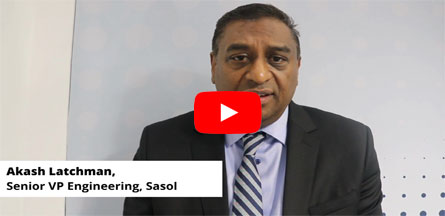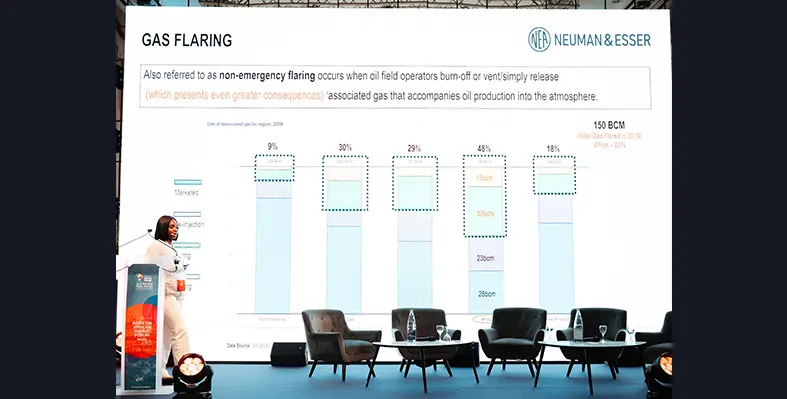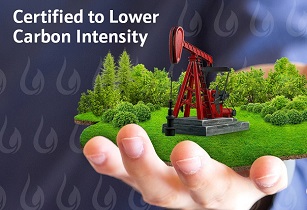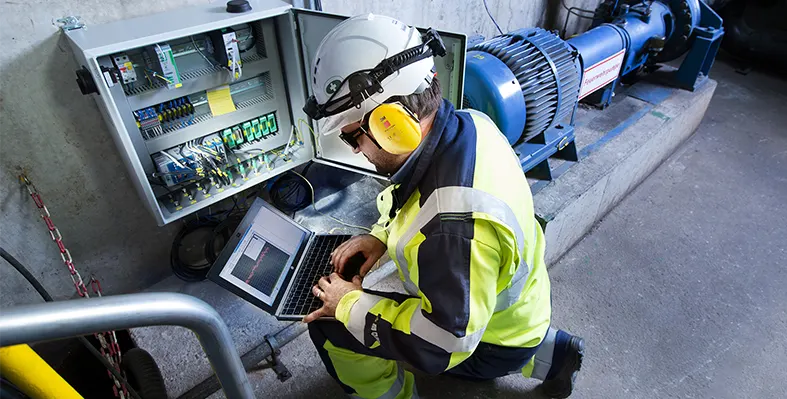In The Spotlight

'Innovate, Invest, Implement: Revolutionised Financing for Sustainable Energy Sector Growth in Africa. (Image source: African Energy Chamber)
The Africa Energy Technology (AET) conference is all set to open tomorrow for the next three days in Accra, Ghana
This year the event will be driven by the theme 'Innovate, Invest, Implement: Revolutionised Financing for Sustainable Energy Sector Growth in Africa', with special focus on technology innovation and new financial mechanisms for diverse investments.
Africa’s oil and gas players are currently seeking to boost production, with Angola planning to sustain output above one million barrels per day (bpd), Nigeria targeting 2.5 million bpd while Libya strives for 2 million bpd. Alongside, gas-rich nations across the continent aim to increase LNG output. The Republic of Congo targets 3 million tons per annum (mtpa) with the start of Congo LNG phase two in 2025; Mozambique is advancing its Rovuma Basin projects; while Senegal and Mauritania eye 5 mtpa at the Greater Tortue Ahmeyim project, following first production in 2024.
The AET 2025 conference will also address the importance of energy mix, with technology driving energy efficiency and sustainability.

The contract will cover the pre-laying activities for an upcoming drilling campaign. (Image source; Subsea7)
Subsea 7 has received a subsea contract in West Africa
This contract will see the company transporting and installing flexible pipelines, umbilicals, and associated subsea components for the connection of a floating production, storage and offloading (FPSO) vessel. It will also cover the pre-laying activities for an upcoming drilling campaign.
Project management and engineering work will begin immediately at Subsea7’s offices in Sutton, UK and Suresnes, France, and offshore activity is expected to start in 2026.
Jerome Perrin, Vice President Africa, Middle East, and Turkiye for Subsea7, said, “Our close and agile collaboration with our clients allows us to make possible cost-effective and reliable offshore solutions for their needs. We are pleased to be able to support this client in executing such a strategically important project in West Africa. ”
AIS Bardot will be working for Saipem Group, serving hybrid riser lines to develop Total Energies’ Kaminho project in Angola
The contract outlines manufacture and supply of three complete hybrid riser lines of 100 metres each. These will be used to pump seawater to provide the appropriate volume and flow of cold water to cool down essential equipment and prevent overheating in the FPSO unit.
To ensure they are light and compact, the riser lines will be manufactured with high-density polyethylene instead of traditional rubber and steel. Cheaper operating costs besides, these less-energy consuming risers will also be sustainable to use.
Stanislas Tchoutakian, business development manager for France, said, “This success strengthens our close relationship with Saipem and Total on this very particular supply. Many years of development and qualification led to this award, congratulations to all the team who made this achievement possible.”
Engineered to meet the precise requirements of water depth, temperature, and flow rate, the water intake risers accommodate the hydrodynamic stresses of the operational environment, ensuring maximum functionality and cost effectiveness. They are easy to install, with a long life span and no maintenance required, while meeting international offshore standard to meet all required specifications.
AIS, (incorporating Covertherm, Manuplas, Bardot, and CRP Subsea) supplies insulation, passive fire protection, buoyancy, and cable protection systems.
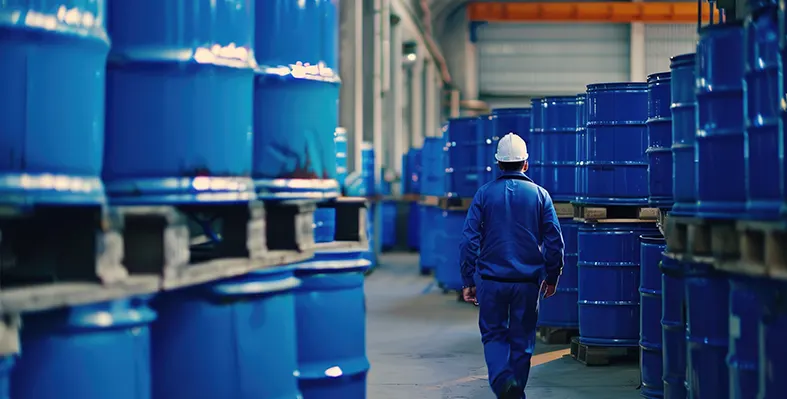
Africa's oil & gas industry needs policies that effectively attract sustainable investment. (Image source: Adobe Stock)
Interest in Africa’s upstream oil and gas sector continues to grow, with the proviso that effective governance, transparent policies and favourable fiscal terms are developed in-country
To foster a sustainable investment environment, African governments must strike a delicate balance between attracting foreign capital and ensuring that investments serve the broader interests of their populations.
For Africa to realise its vast potential in the oil and gas sector, good governance is essential. Governments must establish transparent policies that instill confidence in investors. A commitment to political stability and robust regulatory frameworks not only attracts foreign direct investment (FDI) but also fosters an environment where businesses can thrive.
Key to this approach is the development of favourable fiscal terms that align with the interests of both the state and investors. By offering competitive tax regimes and incentives, governments can entice investors while ensuring that local communities benefit from the wealth generated by natural resources. This alignment is crucial in the context of the United Nations Sustainable Development Goals (SDGs), particularly SDG 7, which emphasises the need for access to affordable and sustainable energy for all.
A panel discussion I hosted during Africa Energy Week underscored the need for policies that effectively attract sustainable investment. African nations, rich in oil and gas reserves, face the challenge of translating these resources into tangible benefits for their populations. Investments should not only generate financial returns but also contribute to socio-economic development.
To achieve this, countries must develop comprehensive strategies that encourage local refining and the establishment of a robust petrochemicals industry. This minimises the export of crude oil and maximises the value retained within the continent, creating jobs and stimulating economic growth. Such a multifaceted approach not only enhances the value extracted from the continent's natural resources but also has far-reaching socio-economic benefits.
For instance, exporting crude oil in its raw form means losing a significant portion of its potential economic value. By investing in local refining capabilities, countries can process crude oil into finished products – such as gasoline, diesel, and various petrochemicals – before they are exported. This transformation allows nations to capture more value from their natural resources and reduce dependency on foreign refined products.
This is the first of a two-part article written by Taona Kokera, director - head of infrastructure finance advisory at Forvis Mazars in South Africa

Geo Exploration anticipates an yield of approximately 4.31 billion barrels from PEL94. (Image source: Adobe Stock)
With two new sandstone leads identified from petroleum exploration licence (PEL) 94 in Block 2011A offshore Namibia following an independent geoscience evaluation, Geo Exploration Limited has confirmed a materially de‑risked resource base
The sandstone leads are Emerald (in the Albian) and Beryl (in the Cenomanian), which has a combined value of 792 MMbbl of unrisked gross mean prospective resources, with 726 MMbbl attributable to Emerald and 66 MMbbl to Beryl.
Geo Exploration, which holds a 78% working interest in PEL94, is anticipating an yield of approximately 4.31 billion barrels.
Seismic mapping has delineated robust, dip and fault‑bounded structural closures. The seismic data interpretation has also highlighted direct hydrocarbon indicators in the area—including gas
chimneys and flat spots—providing strong evidence for an active petroleum system, migration of hydrocarbons throughout the section and therefore increasing the chance that the leads are charged with oil. The water depth is c.750 m at the location of the leads identified.
The promising seismic results have encouraged the company to move ahead with potential farm-out agreements.
Omar Ahmad, chief executive officer of Geo Exploration, said, "Before commenting on these exciting results, I would first like to congratulate Her Excellency Dr Netumbo Nandi-Ndaitwah on her appointment as President of Namibia and Victoria Sibeya on her appointment as Acting Managing Director of the National Petroleum Corporation of Namibia (NAMCOR). I would like to thank Petroleum Commissioner Maggy Shino, the Namibia Ministry of Mines and Energy and our partners for their continued support to Geo.
Today's resource upgrade underscores the tremendous potential we see in PEL 94 and the strong conviction we have in our Namibian licence. Our technical team has done a terrific job delivering
new, material leads on the eastern side of the block. With excitement building across Namibia—and particularly in the Walvis Basin—we are actively progressing farm-out discussions to secure the best outcome for our shareholders"

The contract will cover the pre-laying activities for an upcoming drilling campaign. (Image source; Subsea7)
Subsea 7 has received a subsea contract in West Africa
This contract will see the company transporting and installing flexible pipelines, umbilicals, and associated subsea components for the connection of a floating production, storage and offloading (FPSO) vessel. It will also cover the pre-laying activities for an upcoming drilling campaign.
Project management and engineering work will begin immediately at Subsea7’s offices in Sutton, UK and Suresnes, France, and offshore activity is expected to start in 2026.
Jerome Perrin, Vice President Africa, Middle East, and Turkiye for Subsea7, said, “Our close and agile collaboration with our clients allows us to make possible cost-effective and reliable offshore solutions for their needs. We are pleased to be able to support this client in executing such a strategically important project in West Africa. ”
South Africa has proposed importing liquefied natural gas from the United States over a 10-year period, likely affected by the US' President Donald Trump's tough tariff measures
The development was announced via a document signed by Minister in the Presidency, Khumbudzo Ntshavheni. It said that South Africa's import limits range around 75 to 100 mn cu/m of LNG per year from the US which remains the leading LNG exporter.
This move is believed to unlock for South Africa approximately US$900mn to US$1.2bn in trade per annum and US$9bn to US$12billion for 10 years based on applicable price.
The arrangement was presented by South Africa during President Cyril Ramaphosa's recent visit to the White House.
Ntshavheni, who was part of the government delegation to Washington, said that South Africa is keen on a US collaboration in technologies, including fracking, to advance gas production in South Africa.
While Mozambique currently serves as South Africa's primary source of gas import, its supply reliability might not remain as solid down the line. The potential deal with the US can help fill this gap.
South Africa is said to have considerable gas resources in the Karoo region, but it remains off limits by a moratorium on shale gas exploration due to environmental concerns.
"(South Africa) and the US will negotiate an arrangement to facilitate LNG imports from the US at the appropriate price. This will not replace our current suppliers of gas but complement those supplies," said Ntshavheni.
A thriving local refining sector requires a skilled workforce, which translates into job creation across various levels, from engineers and technicians to construction workers and administrative staff
The development of local refineries can also stimulate growth in related industries, such as transportation, logistics and service sectors, further amplifying employment opportunities.
Building a robust petrochemicals industry enables countries to diversify their economies. Petrochemicals serve as essential inputs for numerous sectors, including agriculture (fertilisers), manufacturing (plastics), and pharmaceuticals. By investing in this industry, countries can reduce their reliance on a single commodity – oil – and create a more resilient economic structure.
By minimising crude oil exports and focusing on value addition, nations can create jobs and stimulate economic growth. This comprehensive strategy not only enhances national wealth but also contributes to the overall well-being of African populations, aligning economic success with social progress.
The concept of ‘profit versus purpose’ serves as a guiding principle in the ongoing debate about energy policy. This framework integrates economic objectives with social and environmental goals, demonstrating that financial success and societal benefit are not mutually exclusive. By prioritising investments that address energy poverty and promote social equity, businesses can contribute to the continent's sustainable development while remaining economically viable.
Investing in energy solutions in underserved regions presents unique challenges, including high initial costs and limited access to traditional financing. However, these challenges also create opportunities for innovative financing mechanisms. Multilateral finance institutions and climate finance initiatives can play the central role in mobilising resources and sharing financial burdens.
Shared value mechanisms allow companies to align their business operations with social impact goals, unlocking new market opportunities while addressing critical issues like energy access. Investing in off-grid renewable energy solutions, for instance, can enable companies to tackle energy poverty while expanding their market reach.
The pathway to unlocking Africa’s oil and gas potential lies in balancing effective governance with the principles of profit for purpose. African governments must create policies that not only attract sustainable investment but also prioritise the welfare of their citizens.
By implementing transparent frameworks, favourable fiscal terms, and innovative financing models, African countries can harness their natural resources for the greater good. This collective responsibility to promote sustainable development will ensure that the benefits of oil and gas investments extend beyond profit, enriching communities and driving long-term economic growth across the continent.
This is the last of a two-part article written by Taona Kokera, director - head of infrastructure finance advisory at Forvis Mazars in South Africa

'Innovate, Invest, Implement: Revolutionised Financing for Sustainable Energy Sector Growth in Africa. (Image source: African Energy Chamber)
The Africa Energy Technology (AET) conference is all set to open tomorrow for the next three days in Accra, Ghana
This year the event will be driven by the theme 'Innovate, Invest, Implement: Revolutionised Financing for Sustainable Energy Sector Growth in Africa', with special focus on technology innovation and new financial mechanisms for diverse investments.
Africa’s oil and gas players are currently seeking to boost production, with Angola planning to sustain output above one million barrels per day (bpd), Nigeria targeting 2.5 million bpd while Libya strives for 2 million bpd. Alongside, gas-rich nations across the continent aim to increase LNG output. The Republic of Congo targets 3 million tons per annum (mtpa) with the start of Congo LNG phase two in 2025; Mozambique is advancing its Rovuma Basin projects; while Senegal and Mauritania eye 5 mtpa at the Greater Tortue Ahmeyim project, following first production in 2024.
The AET 2025 conference will also address the importance of energy mix, with technology driving energy efficiency and sustainability.








